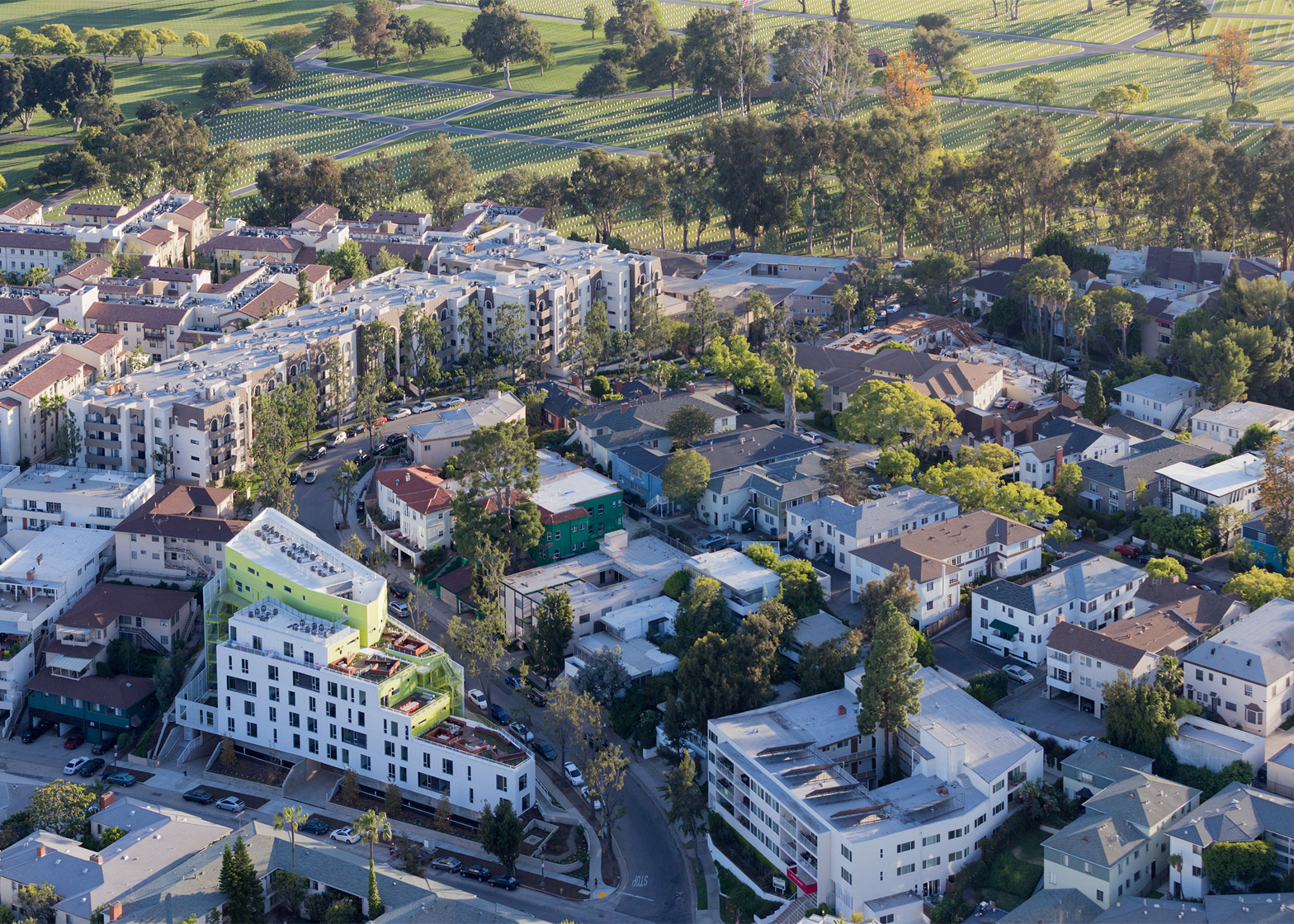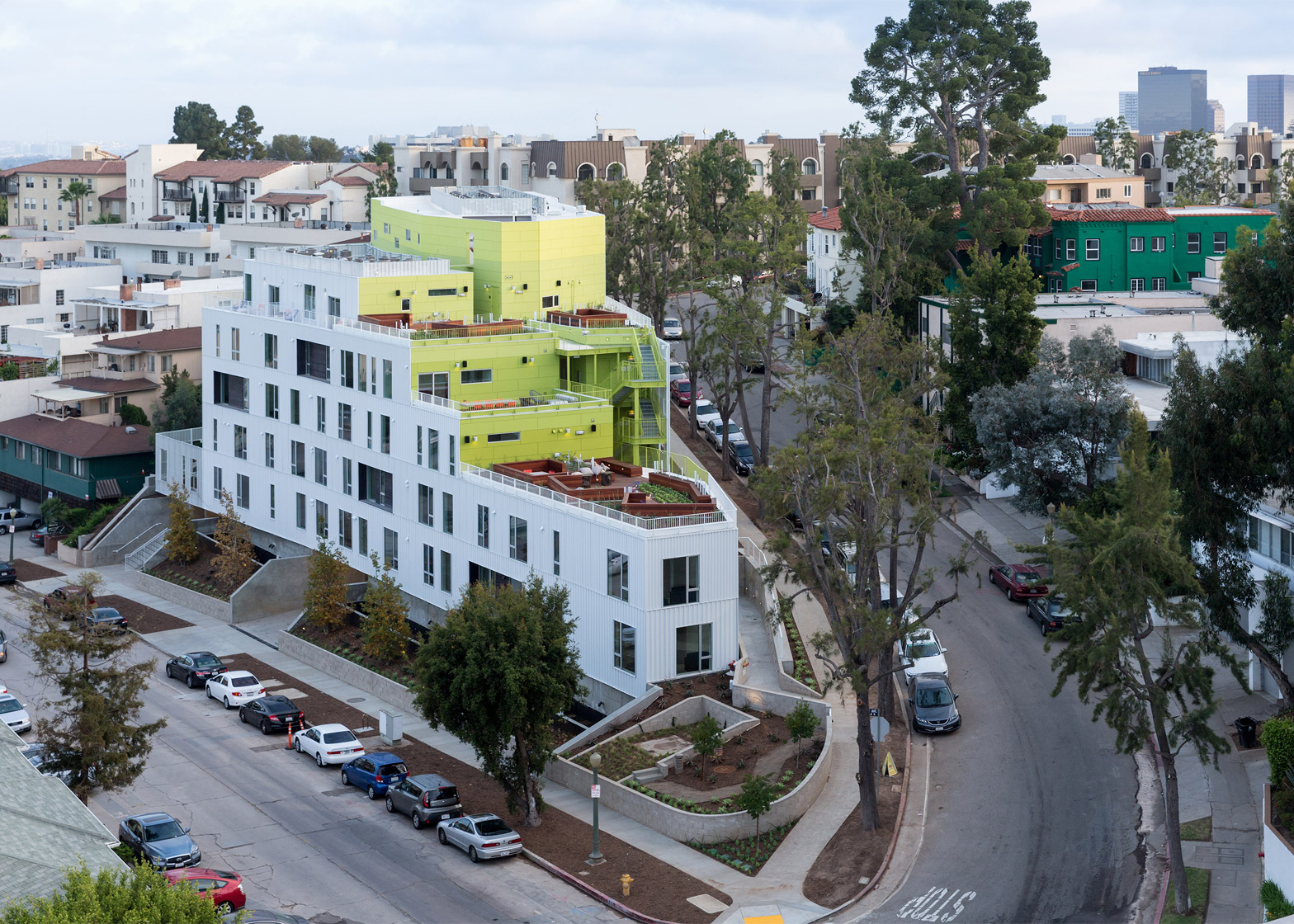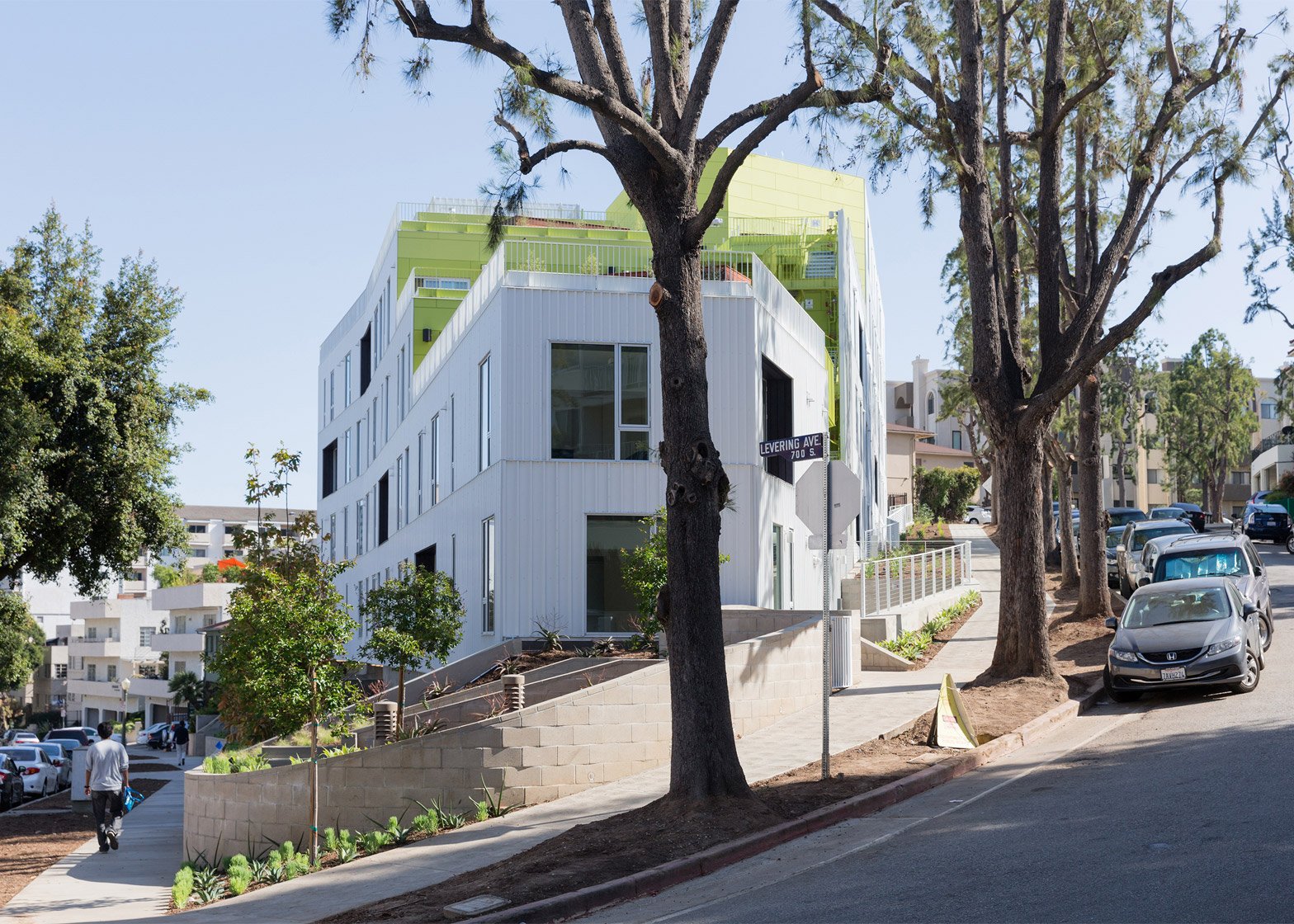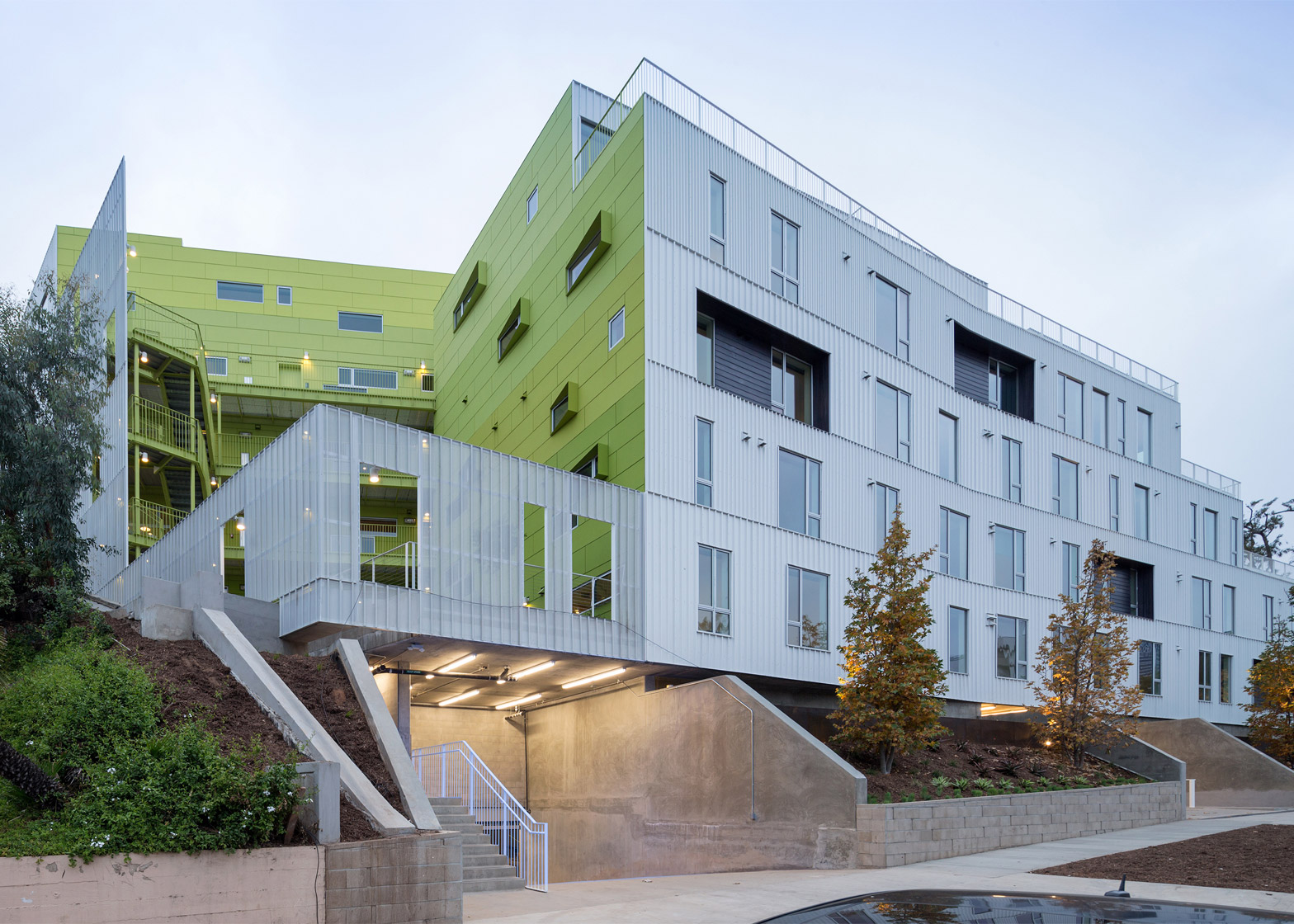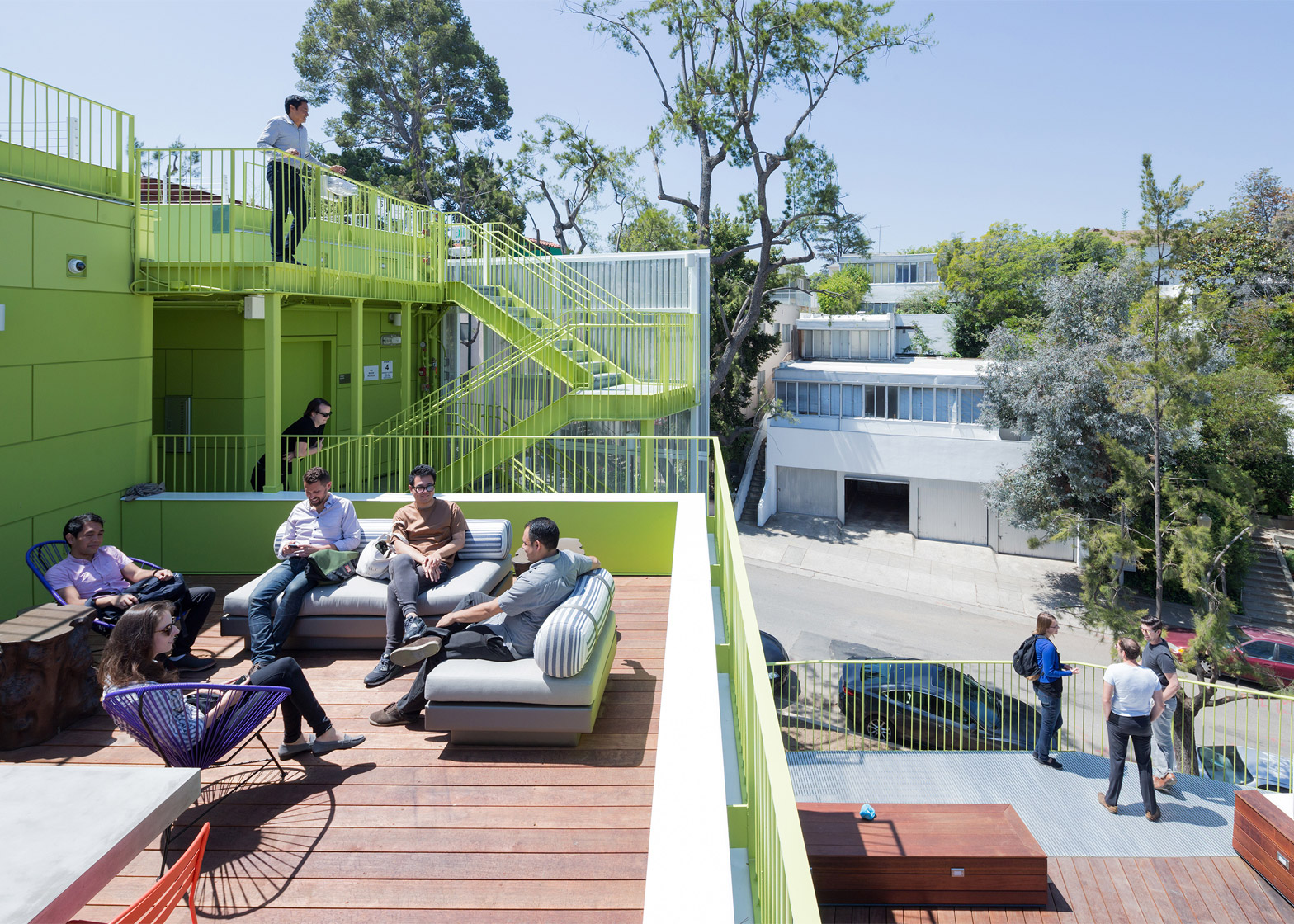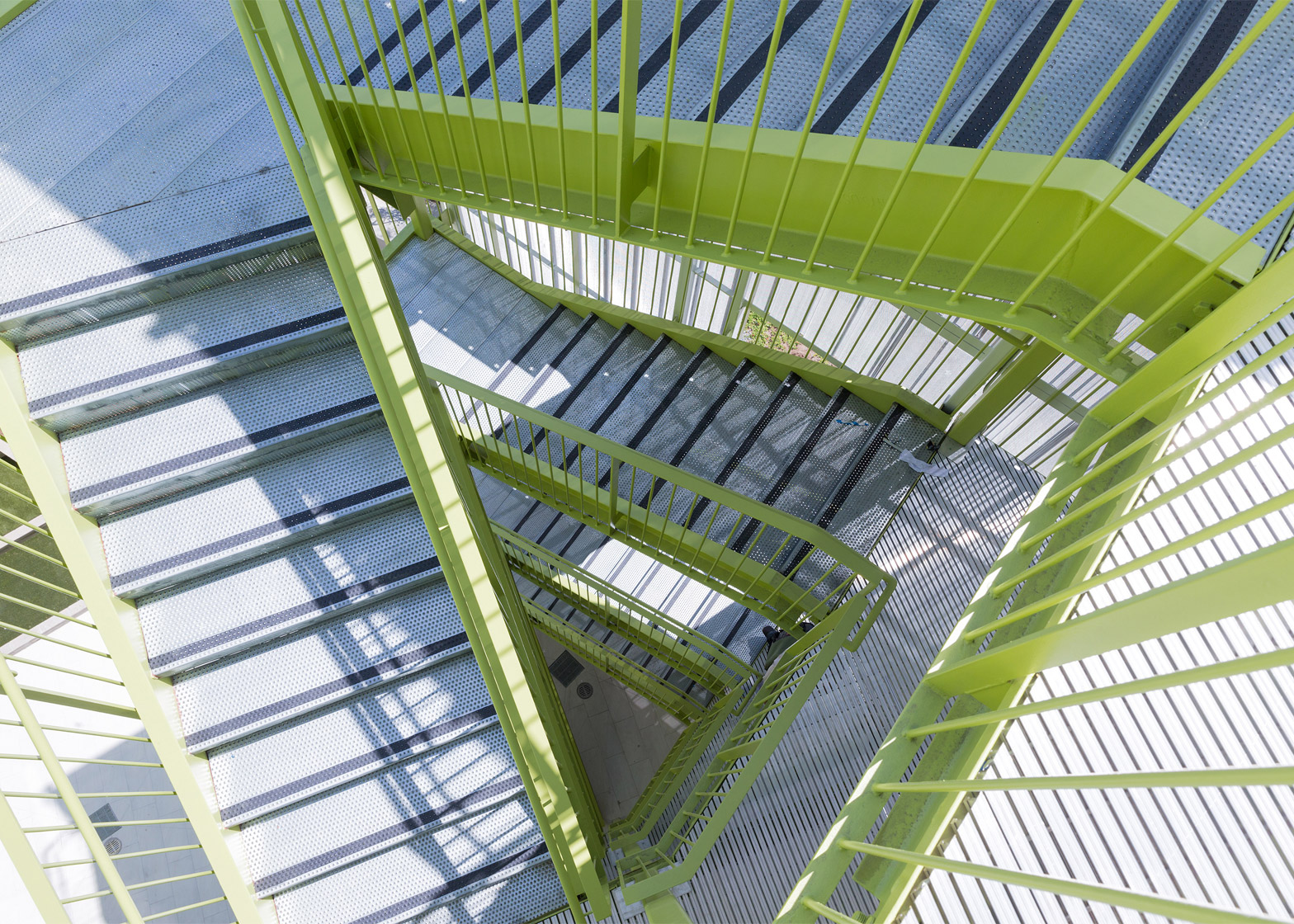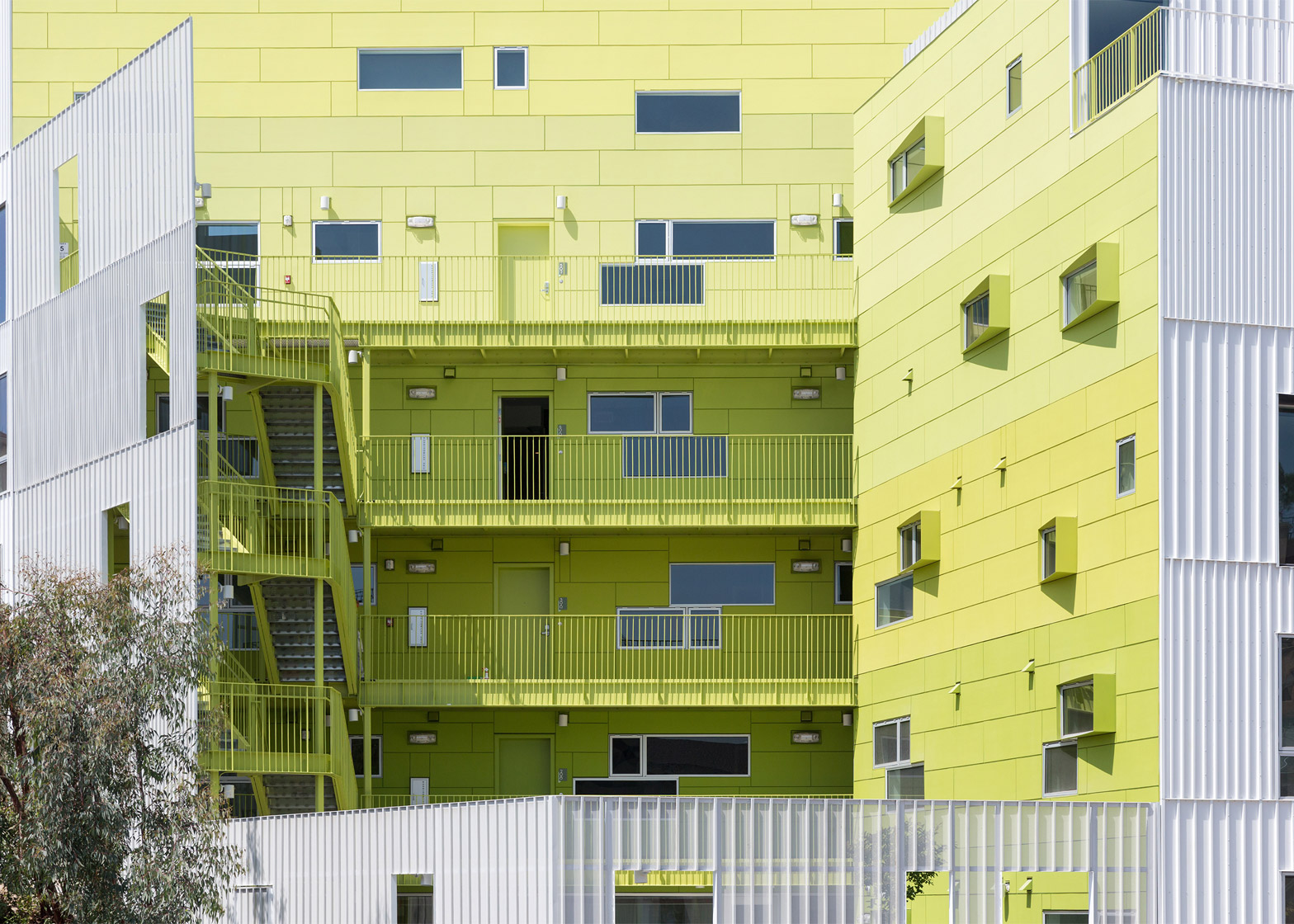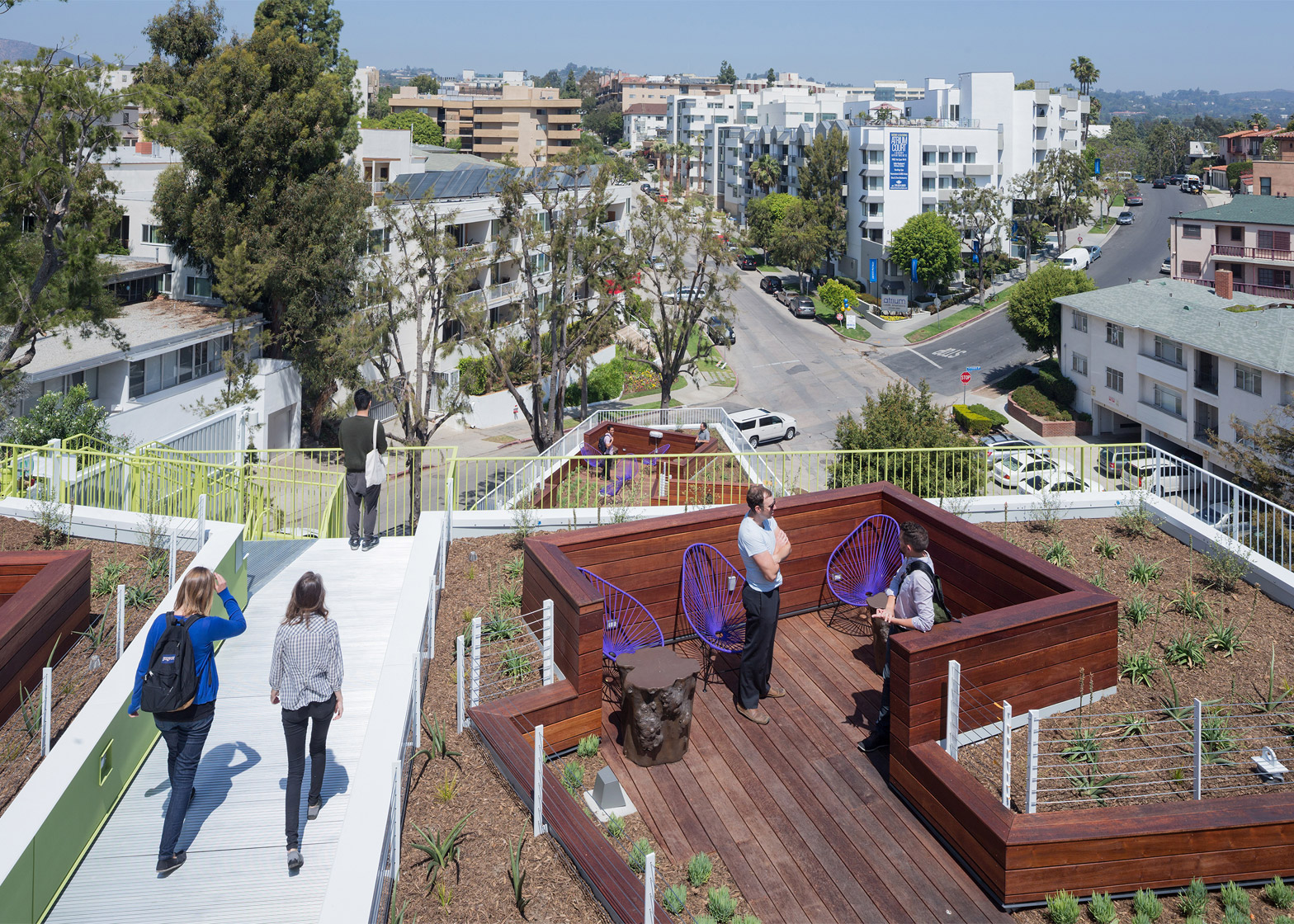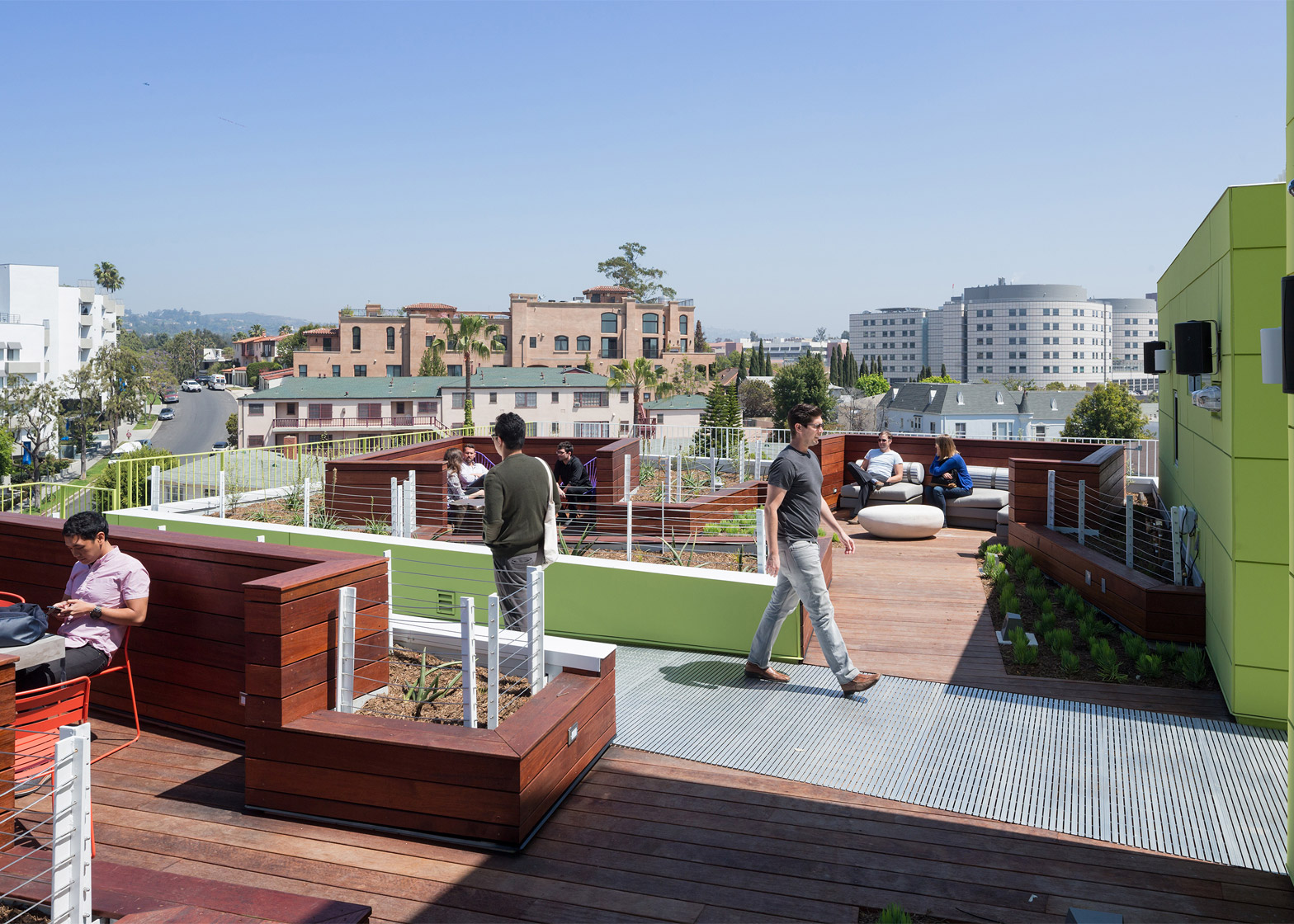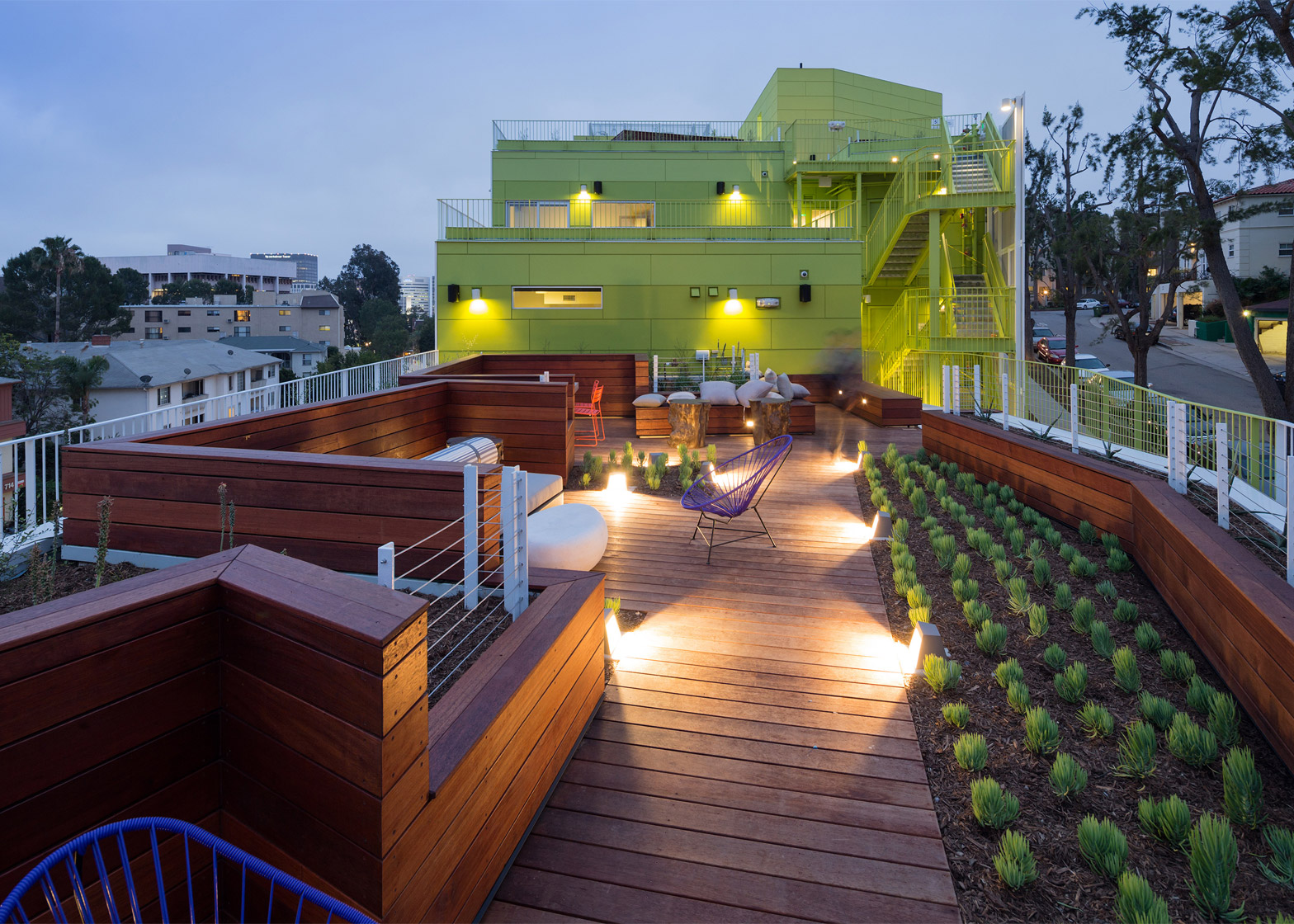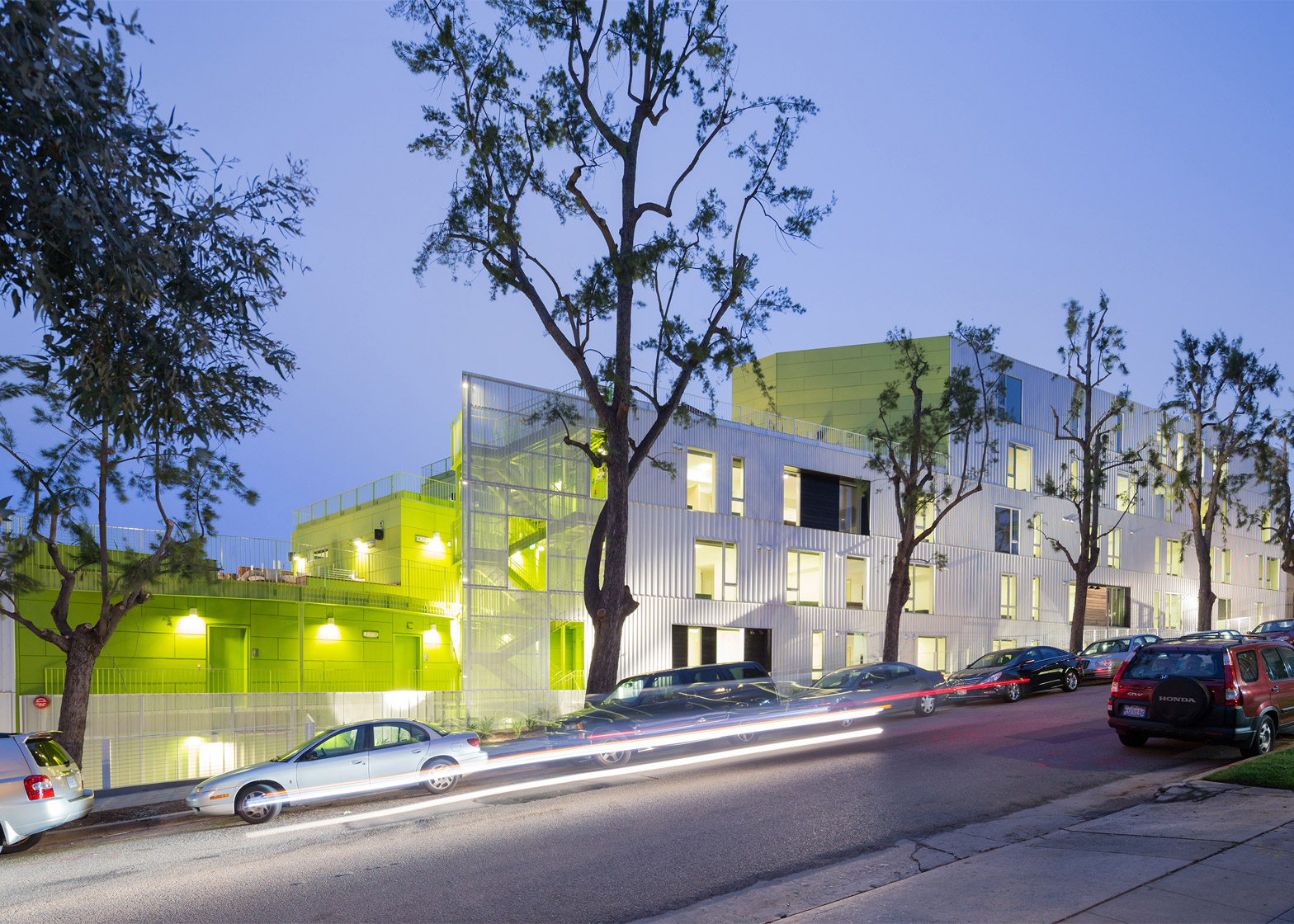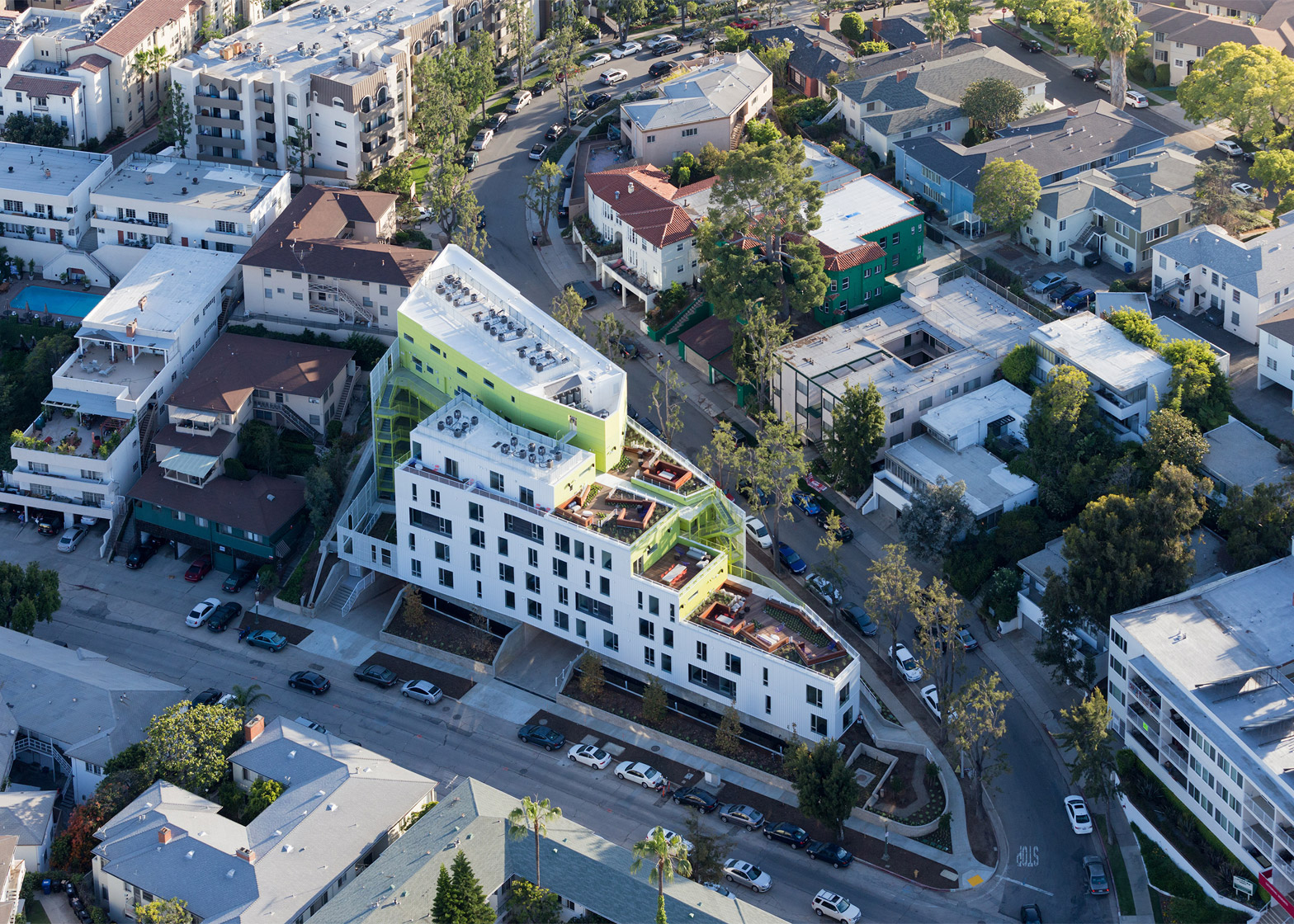Lorcan O'Herlihy Architects has completed a wedge-shaped residential building for students and faculty on a sloped urban site in Los Angeles (+ slideshow).
Called SL11024, LOHA's new housing development sits just beyond the border of the University of California Los Angeles (UCLA) campus, in the city's Westwood neighbourhood.
Encompassing 55,000 square feet (5,100 square meters), the complex was designed to house students and faculty.
The building contains 31 residential units, along with a fitness centre, yoga studio, business centre and lounges.
The development sits opposite Richard Neutra's famed Strathmore Apartments, which opened in 1937. The city designated the eight-unit, Modernist style complex a Historic-Cultural Monument in the 1980s.
LOHA set out to design a building that "pays homage to its preeminent neighbour while providing the community with much-needed housing and gathering spaces".
"Following conversations with the client and community activists, LOHA developed a scheme that responds to the considerations of the established neighbourhood, the client's extensive program requirements, and the unique, wedge-shaped site," said the firm.
Positioned on a hillside, the building is divided into two main volumes that step down towards the street.
"By splitting the building into two volumes, LOHA was able to efficiently integrate the structure's overall massing with the existing landscape, provide wind cross-ventilation to the apartments, and define a clear circulation path through the property," said the Los Angeles-based firm.
"The building's volumes shift downward along the street's natural incline and reach their lowest height directly across from Neutra's Modernist landmark, thereby echoing and amplifying the enlightened site strategies of this high-profile neighbour," the firm added.
The LOHA project features landscaped roof terraces at various levels – along with a number of courtyards – which serve as inviting areas for tenants to relax and socialise.
"By stepping back the form, LOHA created access from each floor level to either a roof deck or a courtyard space, providing vital gathering and community-building venues," said the firm.
"This continuous terracing of communal space from the street level to the roof results in a powerful urban and architectural gesture that offers a multi-layered connection both within the building and out toward the surrounding community," LOHA added.
Portions of the facade are clad in white metal panels that are either solid, perforated or ribbed.
The base of the building is sheathed in cement board painted in eight green-hued layers, resulting in a gradient effect that gets lighter "as the structure meets the sky".
"The green delineates cuts in the building's form, indicating voids for circulation and gathering spaces," the firm explained.
"The cladding system blurs the boundary between the sidewalk and the building mass, creating an animated effect of rippling shadow and light that breaks up the scale of the wall surfaces."
The project represents LOHA's "ongoing commitment to address and elevate challenging urban conditions," according to the firm.
Other projects by LOHA include bus shelters for Santa Monica shaped like blue discs on stilts and a Los Angeles housing development with corrugated metal cladding. The firm also recently renovated and updated the Julius Shulman Home and Studio, where the celebrated photographer lived for six decades.
Photography by Iwan Baan.

